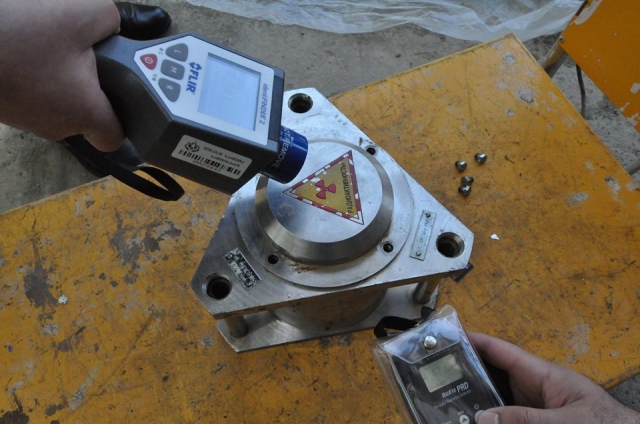Georgian Intelligence Arrests Six for Attempted Uranium Sale
TBILISI – Georgia’s State Security Service agency on Monday detained six individuals suspected of trying to sell Uranium-238.
Agency investigator, Savle Motiashvili, announced to the media shortly after the arrest that Georgian intelligence officers had detained three Georgian citizens and three Armenian nationals while the group planned a USD 200 million sale of the nuclear-grade material.
According to Motiashvili, investigators found the nuclear-grade material while it was still housed in a radioactive-proof container and hidden in the home of one of the accused, later identified as 75 year-old Tbilisi resident Mukhtar Tskhitishvili.
According to various Georgian media reports, four of the six detained are over the age of 75. In addition to Tskhitishvili, the authorities have identified the suspects as Armenian citizens Haikas Hovakyan, Ashot Goroyan, Miran Mosesyan and Georgians Tamaz Bichikashvili and Savle Lursmanashvi.
David Abesadze, Tskhitishvili’s lawyer, said that due to the advanced age of the accused, the government should consider releasing them on humanitarian grounds.
Both Abesadze and the Armenian detainees’ lawyer, Soso Natroshvili, have emphasized that none of accused has pleaded guilty or refused to be interrogated by the authorities.
If found guilty of “the improper use and illegal sale of radioactive materials”, under the Georgian Criminal Code, the six could face up to 10 years in prison.
The highly radioactive substance U-238 is a key component used in the manufacturing of armor-piercing weapons. Nuclear experts have long feared that the material could be easily be sold on the black market and used to create a homemade nuclear device, or ‘dirty bomb’.
Monday’s arrests are only the latest in a series of alarming incidents over the last decade involving the illicit sale and trafficking of radioactive material across Georgia’s borders.
In January, the State Security Service arrested three men who were accused of trying to sell Cesium-137, a highly radioactive isotope that is a waste product from nuclear reactors that can be used to disperse deadly doses of radiation with high explosives.
Turkish officials arrested two Georgian citizens in mid-2015 after they were found hand carrying 1.2 kilos of Cesium-137 across the Georgian-Turkish border, the same corridor used by most Caucasus recruits bound for the Syrian Civil War.
The trafficking of radioactive material through Georgia and into Turkey first came to light in April 2012, when customs officials in the Turkish capital Ankara impounded large quantities of Cesium-137 that was later traced to a source in Russia.
A resident of Georgia’s Russian-backed breakaway region of South Ossetia was arrested in 2006 by the national border guard service while trying to smuggle USD 1 million-worth of radioactive uranium into Georgia from neighboring Russia.
Western governments have been under intense pressure since the 1990s to help halt the illicit black market trade of radioactive material in the former Soviet space.
The availability of loose nuclear-grade material in the region has set off alarm bells in Western capitals, which fear that weapons-grade radioactive material could easily be transported across the porous borders of the former Soviet republics and into the hands of terrorist organizations operating in the Middle East and Central Asia.
By Tamar Svanidze
Edited by Nicholas Waller
Photo: Georgia’s State Security Service












